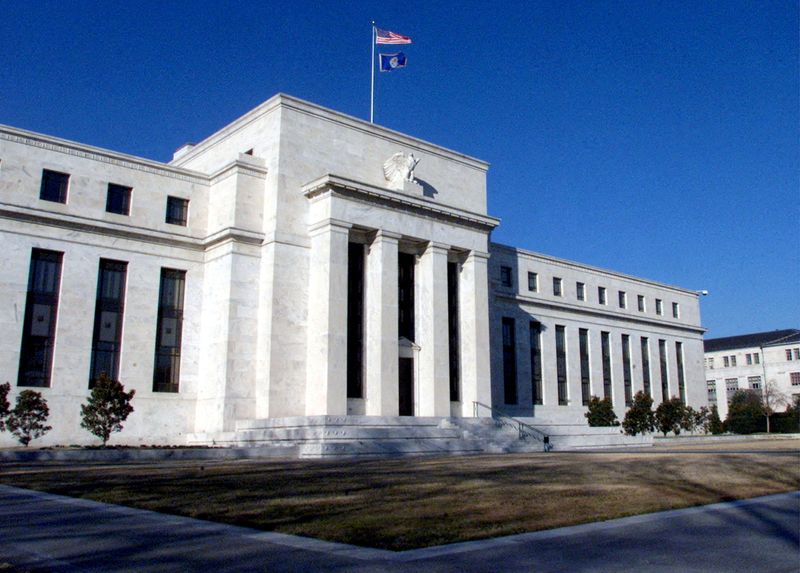By Karin Strohecker and Jorgelina do Rosario
LONDON (Reuters) - Investors are eyeing gains in emerging markets stocks and a cooling of their currencies amid an unprecedented global decoupling in the direction of interest rates.
While the U.S. Federal Reserve has delivered aggressive interest rate hikes since March 2022, major emerging market countries like Brazil, Chile and Hungary have kickstarted rate cutting cycles to spur their economies.
It is not just the early aggressive hikers in Latin America and emerging Europe who are easing - Vietnam and China have also delivered rate cuts in recent months.
Inflation is coming down rapidly in many developing nations who are unwilling to wait until the Fed - or the European Central Bank or Bank of England - are done with tightening. But this time round the breadth of the easing push is unprecedented.
"We have never seen this on a kind of global level," said Dominic Bokor-Ingram, senior portfolio manager for emerging and frontier markets at Fiera Capital.
"So, individual instances - we've seen lots of decoupling from the Fed, but we have never been able to add up emerging markets and add up developed markets, and come to this conclusion," he said, predicting that emerging equities would benefit from the cost of risk coming down.
An analysis of instances over the last two decades when policy makers in select developing economies eased but the Fed didn't, shows equities in the developing countries usually benefited, according to UBS strategist Manik Narain.
In the first six months after the start of what Narain calls an "early" emerging market easing cycle, equities "historically saw strong and front-loaded" returns - on average 7% in local currency terms - when exports growth crossed 10% year on year.
However, historic data showed that local government bonds could be poised to give stocks a run for their money, with 10-year benchmark issues seeing yields decline by 80 basis points in the six month after emerging central banks kicked off easing, translating into total returns of 8%-9%, Narain calculated. Currencies typically struggled, with spot FX return a negative 0.7% on average.
Many emerging currencies - especially in Latin America - have enjoyed a stellar run in the first half of the year, though are in the red this month.
WAVE OF EASING
The policy turnaround began in May, when Hungary's central bank lowered its overnight interest rate to 17% from 18%, its first cut in three years. It cut the rate by another full percentage point in July.
Latin America's major central banks, which have led some of the most aggressive tightening over the last two years, are now reducing the level of monetary policy restrictiveness amid clear signs of slowing inflation.
Chile became in July the first major central bank in the region to cut interest rates by 100 basis points, following the footsteps of smaller peers Costa Rica and Uruguay. And Brazil's central bank followed with a larger-than-expected 50 basis point cut, taking its benchmark rate to 13.25%.
Brazil's 12-month inflation fell to 3.19% in mid-July, below the central bank's target of 3.25%, leading economists to forecast deeper rate cuts to come.
"Headline inflation is crashing lower in different countries at different points in the cycle," Paul Greer, portfolio manager of emerging markets debt and FX at Fidelity International, told Reuters.
Colombia and Peru will cut rates in the next two months, according to Greer, and Hungary will cut again. Czech Republic and Poland could follow suit.
However, some countries probably won't cut until "there is a green light from the Fed of no further hikes," Greer added, with Israel, Korea, Malaysia and Indonesia on that list.
Mexico is part of the same cohort. Bank of Mexico's Jonathan Heath recently said that the bank will keep its benchmark rate steady at 11.25%. Heath added that the Fed's decisions have been "very relevant" to the Mexican central bank's board.
The Fed set the benchmark overnight interest rate in the 5.25%-5.50% range at its latest hike in July, leaving the door open to another rise in September.
Amid increased disinflation prospects globally, Martin Castellano, Head of LatAm research for the Institute of International Finance (IIF) reckons the discrepancy between U.S. and emerging market monetary policy action will be temporary.
"It should not take too long for everybody to be on the same page," he said.
